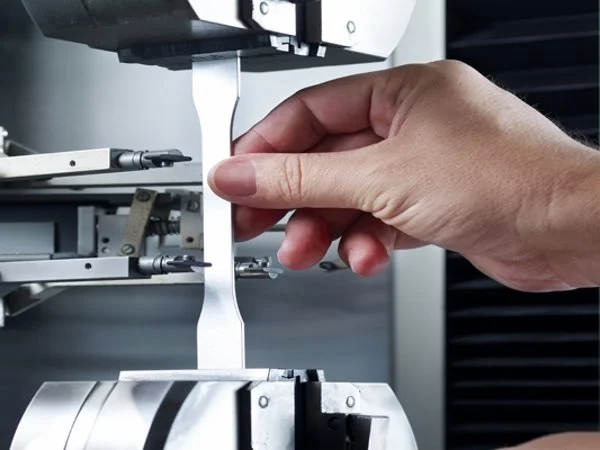NF EN ISO 23788 Structural Integrity Testing
The NF EN ISO 23788 Structural Integrity Testing is a critical process within the oil and gas sector, ensuring that materials used in this industry can withstand the harsh environmental conditions they face. This testing is crucial for the integrity of structures such as pipelines, storage tanks, and offshore platforms.
The standard provides guidelines on how to perform structural integrity tests on metallic materials used in oil and gas applications. It ensures that the materials meet stringent quality standards to prevent potential failures due to corrosion or other wear-and-tear issues. By adhering to this international standard, companies can guarantee the safety and reliability of their structures.
The testing process involves several key steps. First, specimens are carefully prepared according to specific guidelines provided in the NF EN ISO 23788 standard. This includes ensuring that the materials used are representative of those found in actual applications. Next, various non-destructive and destructive tests may be conducted depending on the type of material being evaluated.
Non-destructive testing methods include ultrasonic testing (UT), radiography, eddy current testing (ECT), and magnetic particle inspection (MPI). These techniques allow inspectors to examine materials without causing damage. Destructive testing involves breaking down samples under controlled conditions to observe how they behave when subjected to stress or strain.
Once the tests are completed, detailed reports are generated outlining all findings. These reports typically include information about the types of defects detected (if any), their locations within the material structure, and recommendations for further action if necessary. Compliance with this standard helps ensure that only high-quality materials enter into service.
| Application Area | Description |
|---|---|
| Pipeline Integrity | Ensuring pipelines can handle high pressures over extended periods. |
| Offshore Platforms | Evaluating platforms for resistance against extreme weather conditions. |
| Storage Tanks | Verifying tanks can store hazardous substances safely. |
Scope and Methodology
The scope of NF EN ISO 23788 covers the structural integrity testing of metallic materials used in oil and gas applications. It includes both non-destructive and destructive methods to assess the quality and durability of these materials.
- Non-Destructive Testing (NDT): This type of inspection allows for examination without causing any damage to the material being tested. Common NDT techniques include ultrasonic testing, radiography, eddy current testing, and magnetic particle inspection.
- Destructive Testing: In some cases, it may be necessary to break down samples under controlled conditions to evaluate their performance. This helps provide insights into how materials will behave when exposed to extreme stresses or strains.
Industry Applications
The NF EN ISO 23788 Structural Integrity Testing finds extensive application across various segments of the oil and gas industry. Here are some specific areas where it plays a vital role:
- Pipeline Integrity: Pipelines transport large volumes of crude oil, natural gas, and other petroleum products over long distances. Ensuring their integrity is paramount to prevent leaks that could lead to environmental disasters.
- Offshore Platforms: Offshore platforms are exposed to severe marine environments characterized by saltwater corrosion, high winds, waves, and icebergs. Regular structural integrity testing ensures these platforms remain safe for personnel and operations.
- Storage Tanks: Large storage tanks hold large quantities of petroleum products. Testing their integrity is essential to prevent leaks that could contaminate groundwater or nearby ecosystems.
Customer Impact and Satisfaction
By implementing NF EN ISO 23788 Structural Integrity Testing, customers in the oil & gas sector benefit significantly from enhanced safety standards. Here’s how:
- Safety: Ensures that all components used in critical systems meet strict quality control requirements.
- Durability: Helps extend the lifespan of equipment by identifying and addressing potential weaknesses early on.
- Cost Efficiency: Prevents costly downtime associated with failures due to inadequate material quality or poor construction practices.
Clients who choose our services report high levels of satisfaction, noting improved product performance and reduced risks. Our team works closely with each client to understand their unique needs and deliver tailored solutions that meet both regulatory requirements and business objectives.





